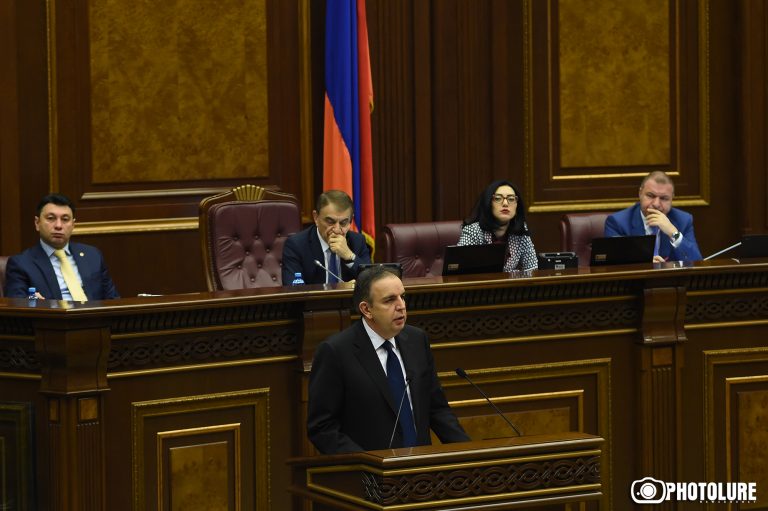The Republican Party member Artashes Geghamyan carefully studied the reaction of the Azerbaijani mass media to the fact that the Republic of Armenia, being a member of the Eurasian Economic Union, has preliminarily signed the EU Agreement that is eventually going to be ratified. Geghamyan said during the discussion about the EU Agreement in the Parliament: “The main blame was whether Armenia will manage to seat on two chairs simultaneously, Armenia will betray either its military and political ally or the EU and will not stay true to the Agreement. This fact caused a trouble for the neighbors of Armenia, and they are not able to hide it.”
Geghamyan said that Serzh Sargsyan has pointed out much earlier that the “either-or” version is not acceptable to us, and the fact that Armenia managed to get “both-and” made a huge fuss for the Azerbaijani and Turkish lobbying.
Hermine Naghdalyan in her turn began to thank everyone who worked hard for this document, in particular Serzh Sargsyan: “This is a historical document both for Armenia and the EU.”
Eduard Sharmazanov, Vice Spokesman of the Parliament mentioned in his speech that the democratic values are irreversible in Armenia, and here the support from the EU is a need. He said that the right of Artsakh people to self-determination will be established as a law with this Agreement. No one can ever break this provision: “By ratifying this Agreement, 27 member states and the EU will recognize this, the right of Artsakh people to self-determination and equality of rights. This is what matters the most to me in this document.”
Sharmazanov said that by ratifying this Agreement, Armenia will contradict neither to the Eurasian Economic Union, nor the Collective Security Treaty Organization: “Armenia is an ally to the Russian Federation, it is a member of the EAEU and CSTO, and the relations in this level are relations of allies. And it is nonsense to talk about a political course change. Armenia will continue developing its good relations with Russia and deepen its partnership relations and dialogue with the EU.”




















































